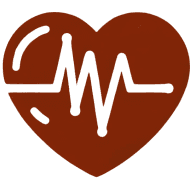What's the Best Advice You've Received About Working in Cardiology?
To uncover the wisdom that has shaped the careers of cardiology professionals, we gathered insights from a Cardiothoracic Surgeon and other practitioners. While the surgeon emphasizes giving your all in everything, additional answers highlight the importance of advocating for heart-healthy lifestyles. Here are six impactful pieces of advice that have guided these professionals in their journey.
- Give Your All in Everything
- Stay Current with Medical Technologies
- Improve Patient Communication Skills
- Pursue Continuous Education and Certifications
- Build a Strong Professional Network
- Advocate for Heart-Healthy Lifestyles
Give Your All in Everything
A piece of advice that has always resonated with me is: "How you do anything is how you do everything. Whatever you’re doing, give it your all." This advice challenges the "arrival fallacy"—the belief that we’ll only give our best effort once we land the perfect job or ideal situation.
In reality, discipline and excellence are built in the everyday tasks, even those that seem boring or mundane. For example, during my psychiatry rotation, I realized early on that psychiatry wasn’t my calling. But by fully immersing myself in that experience, I gained valuable skills that made me a better doctor and surgeon in the long run.
The same principle applies to any routine task. Asking, "What can I learn from this?" helps us cultivate the mindset needed to excel in our dream career.

Stay Current with Medical Technologies
To have a prosperous career in cardiology, it's crucial to stay current with the evolving medical technologies. Advances in technology can lead to new forms of treatment and improve patient outcomes. By keeping up with these changes, cardiologists can offer the best care possible.
Patients and their families will appreciate the use of modern methods. It's important to find reliable sources for such updates so doctors should subscribe to medical journals. Commit to continual learning to stay ahead in the field.
Improve Patient Communication Skills
Effective communication with patients is a fundamental skill in cardiology. Building trust ensures that patients feel comfortable discussing their symptoms and concerns. Clear and compassionate explanations can ease patient anxiety.
When patients are well-informed, they are more likely to follow treatment plans. Strong communication also aids in preventing misunderstandings that could compromise care. Strive to improve these skills regularly.
Pursue Continuous Education and Certifications
In the cardiology field, pursuing continuous education and certifications is essential. Medicine is a constantly changing science, and staying educated ensures high-quality care. Certifications not only build expertise but also signal a commitment to the profession.
They can open doors to advanced roles and specialized positions. Continuous learning demonstrates dedication to improving patient outcomes. Always seek new opportunities for advancement.
Build a Strong Professional Network
Building a network with other healthcare professionals can greatly enhance a cardiologist's career. Collaborations often lead to better patient care through shared knowledge and interdisciplinary approaches. Networking can also provide emotional support and professional advice.
It creates opportunities for research and clinical trials. A strong network aids in career growth and recognition. Start connecting with professionals in various medical fields.
Advocate for Heart-Healthy Lifestyles
Advocating for heart-healthy lifestyle changes is a key aspect of preventive cardiology. Teaching patients about diet, exercise, and stress management can significantly reduce the risk of heart disease. Healthy patients often require fewer medical interventions, benefiting everyone.
Advocacy extends beyond patient interactions to community outreach. Promoting public awareness can lead to healthier communities. Encourage patients and communities to take proactive steps for heart health.

